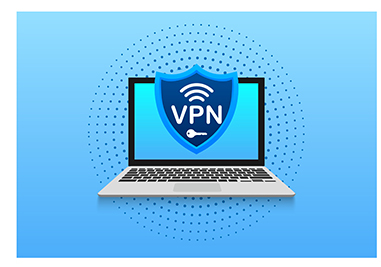As remote work continues to expand, Virtual Private Networks (VPNs) remain a critical tool for securing access to organizational resources. However, while VPNs offer encrypted connections, they are only as secure as the methods used to authenticate users. Passwords alone are no longer enough to protect against modern cyber threats. This is where Multi-Factor Authentication (MFA) plays a critical role.
Why Passwords Are Not Enough
Even strong passwords are susceptible to theft, phishing schemes, and brute force attacks. Once compromised, they can grant attackers unrestricted access to sensitive systems via the VPN, potentially leading to data breaches, financial losses, or reputational damage. MFA addresses this vulnerability by requiring additional verification steps that are harder to compromise.
How MFA Protects VPN Access
MFA adds an extra layer of security by requiring users to authenticate using two or more factors:
- Something you know – A password or PIN.
- Something you have – A mobile app, security token, or smart card.
- Something you are – Biometric data such as a fingerprint or facial recognition.
This multi-layered approach makes it exponentially harder for attackers to gain access, even if they have stolen the user’s password.
Benefits of MFA on VPNs
- Enhanced Security: Protects against phishing, credential stuffing, and brute force attacks.
- Regulatory Compliance: Helps meet security standards in frameworks like HIPAA, GDPR, and PCI DSS.
- Business Continuity: Ensures only authorized users can access critical systems, reducing the risk of operational disruption.
A Necessary Step in Cybersecurity
In an era where cyber threats are growing in sophistication, implementing MFA on VPNs is no longer optional—it’s essential. By adding a second layer of defense, organizations can secure remote access, protect sensitive data, and instill confidence in their overall cybersecurity measures.
Investing in MFA is a simple yet effective step that strengthens VPN security, safeguards business assets, and helps organizations stay resilient in an ever-evolving digital landscape.

